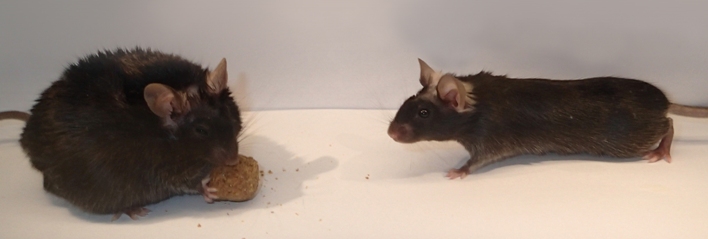Podcast: Play in new window

BOB HIRSHON (host):
A stop-eating signal. I’m Bob Hirshon and this is Science Update.
When they turned off an enzyme in the brains of mice that they thought was involved in learning, Johns Hopkins University School of Medicine researchers got an unexpected surprise.
RICK HUGANIR (Johns Hopkins University School of Medicine):
These mice, within 2 or 3 weeks, basically doubled their weight. It was really pretty amazing. And all of a sudden, instead of studying learning and memory, we were studying feeding and obesity.
HIRSHON:
Neuroscientist Rick Huganir says the enzyme, called OGT, acts on neurons of the hypothalamus. His team writes in Science magazine that without it, the mice just kept on eating. But stimulating the same neurons in typical mice curbed snacking. The study could provide clues for the treatment of obesity.
HUGANIR:
This is just a great example of serendipity in science, you know, you’re looking for one thing and then all of a sudden you make an observation which totally switches your direction of research.
HIRSHON:
The study could provide clues for the treatment of obesity in humans. I’m Bob Hirshon, for AAAS, the science society.
